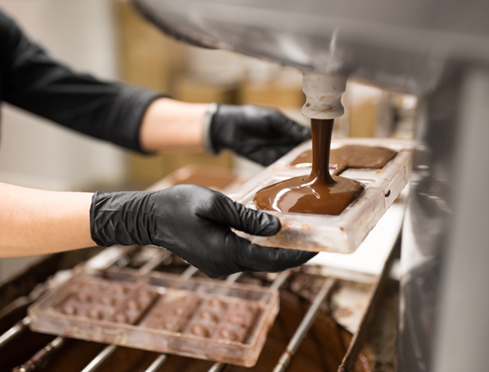Secret Factors To Consider for Picking Your Food Manufacturing Companion in Australia
The food industry in Australia is a vibrant landscape, with private-label products acquiring support for their branding possibilities and also competitive edge. When starting a private-label food endeavor, selecting the best contract food manufacturing companion is vital. In this comprehensive overview, we will certainly explore the essential factors to consider prior to choosing contract food manufacturers in Australia.
Private-label items supply stores one-of-a-kind branding opportunities, making the option of a manufacturing companion critical. In Australia, renowned for its cooking diversity as well as rigid high quality standards, a successful collaboration with a contract food manufacturer depends upon numerous key considerations.
1. Quality Control as well as Conformity
The foundation of any type of private-label endeavor is uncompromising quality. Before selecting a contract food producer, it is crucial to analyze their commitment to adhering to sector laws and high quality standards. In Australia, the food sector is firmly controlled to make sure food safety and security and item honesty. manufacturers should hold certifications such as Danger Evaluation and Vital Control Points (HACCP) to demonstrate their commitment to best practices in food manufacturing.
2. Experience and Field of expertise

Various contract food manufacturers have differing areas of proficiency and also field of expertise. Depending on your product group, discovering a supplier experienced in producing similar things is necessary. Whether it's bakery items, sauces, snacks, or drinks, partnering with a supplier accustomed to your picked item group's ins and outs can considerably enhance the result.
3. Modification and Flexibility
Private-label products prosper on individuality as well as differentiation. When selecting a contract food manufacturer, consider their determination and also capacity to tailor products according to your brand's specs. The ability to modify components, tastes, product packaging, as well as labeling can be a game-changer in producing an item that sticks out in the marketplace.
4. Production Ability as well as Scalability

As your private-label food gains traction, its need might increase. Collaborating with a contract food manufacturer outfitted to manage your growing needs is necessary. Examining the producer's production capacity and scalability ensures a smooth change from small-batch production to larger amounts without jeopardizing high quality.
5. Clear Communication
Clear and also clear communication is critical to a successful partnership. A perfect contract food manufacturer should be responsive, going to get input, and proactively connect production progression. Effective discussion warranties mutual understanding and also prompt resolution of any kind of possible difficulties.
6. Product Development Assistance
The journey from principle to market-ready product can be intricate. Choosing a contract food supplier that uses product growth support can simplify this procedure. manufacturers who provide insights right into market trends, recommend ingredient improvements, and aid improve dishes can substantially quicken your product's time to market.
7. Quality of Ingredients and also Sourcing
The top quality of components made use of in your private-label foodstuff straight influences its preference, texture, as well as general charm. In Australia, customers are increasingly aware of the source as well as quality of components. Partnering with a contract food supplier that prioritizes sourcing premium, locally sourced active ingredients can add to the success of your private-label brand name.
8. Price Factors to consider
While high quality is critical, price factors to consider can not contract food manufacturing australia be overlooked. Analyze the manufacturing expenses, consisting of manufacturing, product packaging, as well as labeling, to guarantee the end product lines up with your budget plan. It is very important to stabilize high quality as well as cost to use worth to your consumers while keeping healthy and balanced earnings margins.
9. Reputation as well as References
Research the contract food supplier's track record within the industry and look for references from their existing or past customers. On-line evaluations, reviews, and also straight interactions with other brands they've partnered with can provide valuable understandings into their dependability, professionalism and trust, and overall performance.
10. Sustainability Efforts
With expanding environmental understanding, customers are progressively attracted to brand names that focus on sustainability. Picking a contract food manufacturer with lasting practices, such as environmentally friendly packaging choices and waste decrease efforts, aligns with existing market patterns and mirrors favorably on your brand's photo.
Frequently asked questions
Q1. What is contract food manufacturing?
Contract food manufacturing includes contracting out the manufacturing of foodstuff to a specialized manufacturer. These manufacturers create food based on the specs as well as demands of a brand or business, allowing for private-label branding.
Q2. How do I make sure food safety in contract food manufacturing?
To guarantee food safety, choose a contract food supplier in Australia with accreditations like HACCP (Danger Analysis and Essential Control Factors). In addition, consistently examine their facilities and processes for compliance with food safety guidelines.
Q3. Can contract food manufacturers aid with product development?
Yes, numerous contract food manufacturers provide item advancement assistance. They can supply insights right into market patterns, suggest ingredient enhancements, and also assist in dish improvement.
Q4. What is the importance of sustainability in contract food manufacturing?
Sustainability is critical in contract food manufacturing as it straightens with customer preferences as well as mirrors positively on your brand name's image. manufacturers with sustainable methods add to minimizing the ecological influence of food manufacturing.
Conclusion
